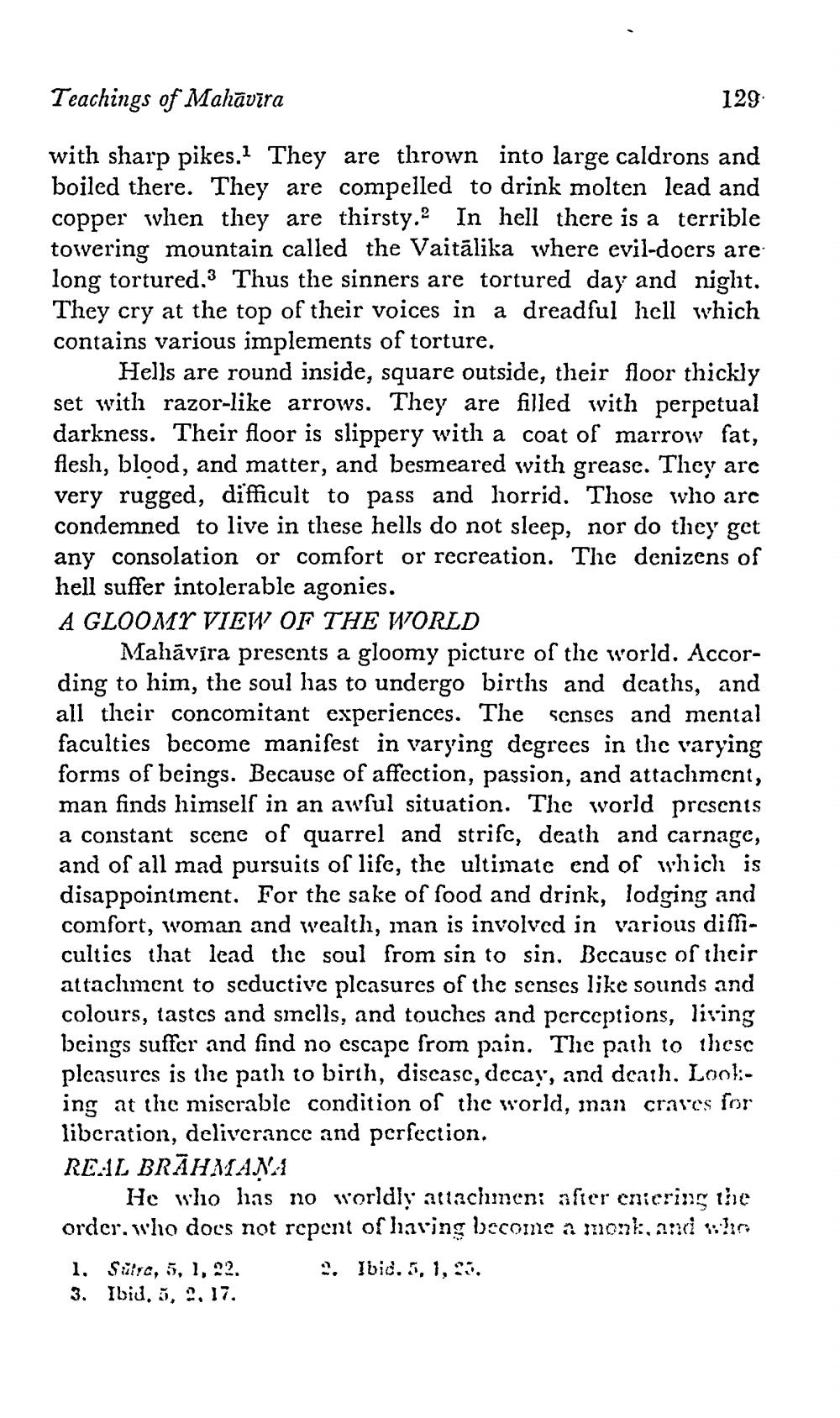________________
Teachings of Mahāvīra
129
with sharp pikes. They are thrown into large caldrons and boiled there. They are compelled to drink molten lead and copper when they are thirsty. In hell there is a terrible towering mountain called the Vaitālika where evil-docrs are long tortured.3 Thus the sinners are tortured day and night. They cry at the top of their voices in a dreadful hell which contains various implements of torture.
Hells are round inside, square outside, their floor thickly set with razor-like arrows. They are filled with perpetual darkness. Their floor is slippery with a coat of marrow fat, flesh, blood, and matter, and besmeared with grease. They are very rugged, difficult to pass and horrid. Those who arc condemned to live in these hells do not sleep, nor do they get any consolation or comfort or recreation. The denizens of hell suffer intolerable agonies. A GLOOMY VIEW OF THE WORLD
Mahāvira presents a gloomy picture of the world. According to him, the soul has to undergo births and deaths, and all their concomitant experiences. The senses and mental faculties become manifest in varying degrees in thc varying forms of beings. Because of affection, passion, and attachment, man finds himself in an awful situation. The world presents a constant scene of quarrel and strifc, death and carnage, and of all mad pursuits of life, the ultimate end of which is disappointment. For the sake of food and drink, lodging and comfort, woman and wealth, man is involved in various difficulties that lead the soul from sin to sin. Because of their attachment to seductive plcasures of the senses like sounds and colours, tastes and smells, and touches and perceptions, living beings suffer and find no escape from pain. The path to these pleasures is the path to birth, discasc, decay, and death. Looking at the miserable condition of the world, man craves for libcration, deliverance and perfection. RE:L BRAHMANA
He who has no worldly attachmen: after eniering the order. Who does not repent of having become a monk, and she 1. Sätra, 5, 1,22. .. Ibid. 5, 1, 3. 3. Ibid. 5, ?, 17.




